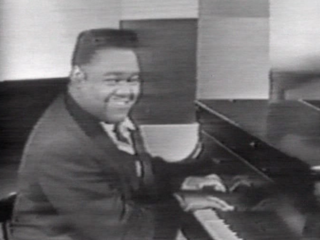Grief
Surprised These Rockers Are Still Alive?
Why don’t we celebrate stars more while they’re still with us?
Posted June 2, 2016

The period between late 2015 and now has already established itself as a historically notorious one for musical deaths, with the loss of pivotal stars David Bowie and Prince, as well as many other influential figures such as Merle Haggard, Maurice White, Paul Kantner, Glenn Frey, Natalie Cole, Lemmy, and Keith Emerson.
The other day some colleagues and I were discussing what a rough time it’s been for music, and some of them were not just struck by who we’ve lost but surprised to learn that several old-time rockers are still with us, even though we hear little about them these days. Heading this list are Chuck Berry (age 89), Fats Domino (88), Little Richard (83) and Jerry Lee Lewis (80). All of these men were first-generation rockers; and stars in the 1950s proved to be highly and directly influential on the biggest performers of the next several decades. It’s especially easy to hear the influence of Chuck Berry and Little Richard, for example, in the music of the Beatles and the Stones.
When any of these legends do pass away, surely we will see an outpouring of grief, love and nostalgia, similar to what we’ve seen with the passing of these other stars. But this raises an interesting question: Why do we celebrate such figures so much when they die, but seem to hardly notice them when they’re still alive (but of advanced age)?
The best answer to this question is probably that we want to remember these performers as they were in their heyday, when they were young and their stars shone the brightest. When a star passes away, it gives admirers a chance to commemorate the version of that star that they most want to remember. Death is ritualized in the West as it is in many other cultures—as an occasion for the living to reflect on the life of the departed, in terms of what aspects of this life they valued the most.
It seems sad and unfortunate in some respects, but the reason that people will celebrate the lives of first generation rockers more after they’re gone is that people want to remember them from when they were in their prime. Focusing too much attention on these stars while they’re in their 80s might do more to undermine or overwrite these nostalgic memories than to reinforce them. It’s a counterintuitive and somewhat tragic quirk of human psychology that we often wait until someone is gone before we openly declare how much they meant to us.
Copyright Michael E. Price 2016. All rights reserved.


